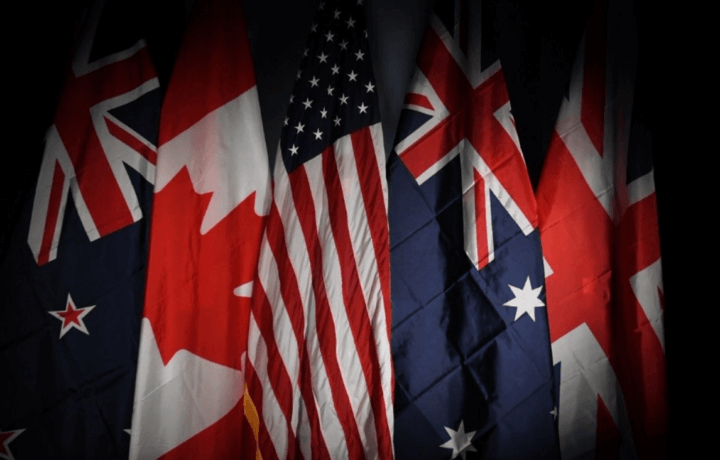Fearing threats from the People’s Republic of China (PRC), Taiwan is now sharing intelligence with the United States and the other nations that make up the so-called “Five Eyes” – the intelligence alliance that currently comprises Australia, Canada, New Zealand, the United Kingdom, and the United States. The countries are parties to the multinational UKUSA agreement, an international treaty for joint cooperation in signals intelligence.
Taipei maintains “real-time” intelligence sharing Taiwan’s National Security Bureau (NSB) Director-General Tsai Ming-yen said during a legislative session. In addition, the NSB has been upgrading its computer equipment since last year to the level of those used by intelligence communities now in use in the Five Eyes and other partner nations.
According to Taiwanese media reports, the bureau had even allocated funds to establish “instant online reporting and communication mechanism” with the former nations. All communications are being conducted via a secure and encrypted system.
When asked by reporters if the NSB was already sharing intelligence with the Five Eyes, Tsai response, “Yes, and in real-time,” but didn’t elaborate further.
Protecting the Vote
A major concern in Taiwan – the self-governing island nation that Beijing maintains is a breakaway province that will be returned to mainland control and by force if necessary – is interference in next year’s presidential and legislative elections. Just as U.S. officials fear actions from China and Russia in our presidential election, Taipei practically expects China to interfere in the vote.
The news of the intelligence sharing also comes just a week after it was reported that Beijing has established overseas “secret police stations” that are tasked with collecting information on people who criticize the Chinese Communist Party.
Beijing has denied the allegations.
A Complex Arrangement
The sharing of any information with Taiwan is bound to be complex, given that the U.S. officially cut diplomatic ties with Taiwan in 1979 when it moved its embassy to Beijing. Washington does not officially recognize Taiwan as an independent state, even as it is essentially the last outpost of the nationalist government that was driven off the mainland at the end of the Chinese Civil War in 1949.
However, Washington and Taipei continue to maintain a close unofficial relationship.
The Taiwan Relationship Act (TRA), which has been effective since January 1, 1979, uses the terminology of “governing authorities of Taiwan,” and it authorized de facto diplomatic relations with those authorities. The TRA does not guarantee that the United States would intervene militarily if the PRC were to attack or invade Taiwan, but it does state that the United States would make available to Taiwan the means to maintain a sufficient self-defense capability.
Taiwan also rejects Beijing’s sovereignty claims and has vowed to defend its freedom and democracy.
A Sixth Eye?
Over the years, there has been talk of expanding the Five Eyes to include a number of nations such as Israel, Singapore, South Korea, and Japan – all of which have or continue to collaborate with the alliance. In addition, France has been propositioned to join the treaty to form a “Six Eyes” alliance.
It is unlikely, however, that Taiwan would join the official Five Eyes, but like those other nations will continue to share vital intelligence that is related to threats from China and likely North Korea as well.
Australia, India, Japan, and the United States are also engaged in a strategic security dialog that had previously existed from 2007 to 2008, and which was re-established in 2017. Quad Plus members include New Zealand, South Korea, and Vietnam. Though it wasn’t established to share intelligence, it was meant to create a shared vision for a Free and Open Indo-Pacific.
The Eyes Have It!
Other intelligence sharing initiatives have included the Five Eyes Plus 3, which includes France, Germany, and Japan to counter rising threats from China and Russia; while the Five Eyes plus France, Japan, and South Korea now routinely share information about North Korea’s military activities.
There is also another arrangement – the Nine Eyes – that consists of the Five Eyes and works with Denmark, France, the Netherlands, and Norway. And allegedly, there is the group of 14 nations known as SIGINT Seniors Europe (SSEUR), which is the Nine Eyes plus Belgium, Germany, Italy, Spain, and Sweden.
In September 2021, there was speculation that another Nine Eyes could be created that would include the Five Eyes along with not only Japan and South Korea but also India and Germany. Given that Taiwan is already sharing intelligence; such a group could become Ten Eyes.
Clearly, the more eyes watching for threats in the world, the better – even if it’s a lot to track!




